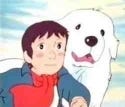Sapiens is only a book about our future as a species. No big deal.
In Profound Reading, we dig deep into the most influential books ever written. We learn timeless and essential knowledge from the world’s greatest thinkers, and how to apply this wisdom to our lives.
This is the introduction to our first great book, Sapiens: A Brief History of Humankind by Yuval Noah Harari.
“What do we want to become?”
We are Sapiens, the masters of the planet. But will we remain Sapiens for long? Where does the history of our species go from here? Is its end upon us?
Will we evolve, via our technology, into an entirely new species? Or will we obliterate ourselves before that can happen?
Sapiens is an ambitious work, with an ambitious message. Like any great work, it raises more questions than it answers. (And with that said, the most impressive thing about this book is, it answers a hell of a lot of questions!)
What is the message? It’s a call to action. The sentence that embodies this call, the one that struck me the hardest of any sentence in the book, comes at the very end, capping the discussion of the future of our species. It’s an answer to the question of what we want to become.
“Most people,” Harari says, “prefer not to think about it.”
And it’s true. Parts of this book are viscerally disconcerting. Particularly the chapters on the question of happiness and the advance of biological and genetic engineering that precede the above statement.
I do prefer not to think about it. The future of humanity is a scary topic. The pace of change and the increase in our technological abilities? Sky-high, and accelerating.
There’s trivially-cheap DNA transcription and replication, stealth nanobots, bionic body modifications controlled by thought, sentient computer programs, the Human Brain Project.
Yeah, scary. Why not let the scientists and the politicians worry about it?
To see why we need more people to think about it, people like you and me, let’s take a look at one of the most controversial arguments Harari makes in Sapiens.
Because it turns out that we’ve already experienced a revolution that forever changed the fate of our species. And it’s a revolution that Harari damns as “history’s biggest fraud.”
The Agricultural Revolution. “Scholars,” Harari writes,
“once proclaimed that the Agricultural Revolution was a great leap forward for humanity. They told a tale of progress fueled by human brain power. Evolution gradually produced ever more intelligent people. Eventually, people were so smart that they were able to decipher nature’s secrets, enabling them to tame sheep and cultivate wheat. As soon as this happened, they cheerfully abandoned the grueling, dangerous, and often spartan life of hunter-gatherers, settling down to enjoy the pleasant, satiated life of farmers.”
We know now that, as Harari says, “this tale is a fantasy.” But he sets it up thus to go even farther. Whereas many of us simply say, “well, it’s complicated,” Harari is full of scorn for our transition to farming:
“Rather than heralding a new era of easy living, the Agricultural Revolution left farmers with lives generally more difficult and less satisfying than those of foragers. [Editor’s note: I would hang a bright blue ‘citation needed’ tag over this.] Hunter-gatherers spent their time in more stimulating and varied ways, and were less in danger of starvation and disease. The Agricultural Revolution certainly enlarged the sum total of food at the disposal of humankind, but the extra food did not translate into a better diet or more leisure. Rather, it translated into population explosions and pampered elites. The average farmer worked harder than the average forager, and got a worse diet in return. The Agricultural Revolution was history’s biggest fraud.”
That phrase also serves as the chapter’s title. He means it.
I’m not delving into whether this view is right, or wrong, or both. Some things I agree with wholeheartedly (for instance, that we didn’t cultivate wheat, it cultivated us), and others I have problems with.
I don’t focus on this debate because I agree the most with its conclusions. Nor is it necessarily the most engrossing or important argument in a book chock full of them.
Instead, I highlight the Agricultural Revolution because it is most relevant today, and specifically for the question above: “What do we want to become?”
Humans did not want to become farmers. We didn’t make the decision after careful thought. We didn’t have the global civilization we have today. It just sort of happened.
And once it happened, and we got addicted to the farming life, there was no going back. We changed forever.
Certainly farming did help us attain a “pleasant, satiated life” — at least in the short-term. Are we better off as a species, today, because of agriculture? Judging by the controversy this book chapter and this debate have generated, the answer to that question is hotly contested.
But while Harari comes down firmly on the “no” side, I think he’s making a greater point. A plea, even.
We never had a chance to debate the merits of agriculture. But today, with our technology, we can see the future coming. And more importantly, we have a say in it.
The future of the Sapiens is at stake in so many ways. We may prefer not to think about it, but we have to. We have to have the debate, and we have to study our history (and read this book!).
We have to because if we don’t, then nobody will. And we’ll be at the mercy of… well, ourselves.
